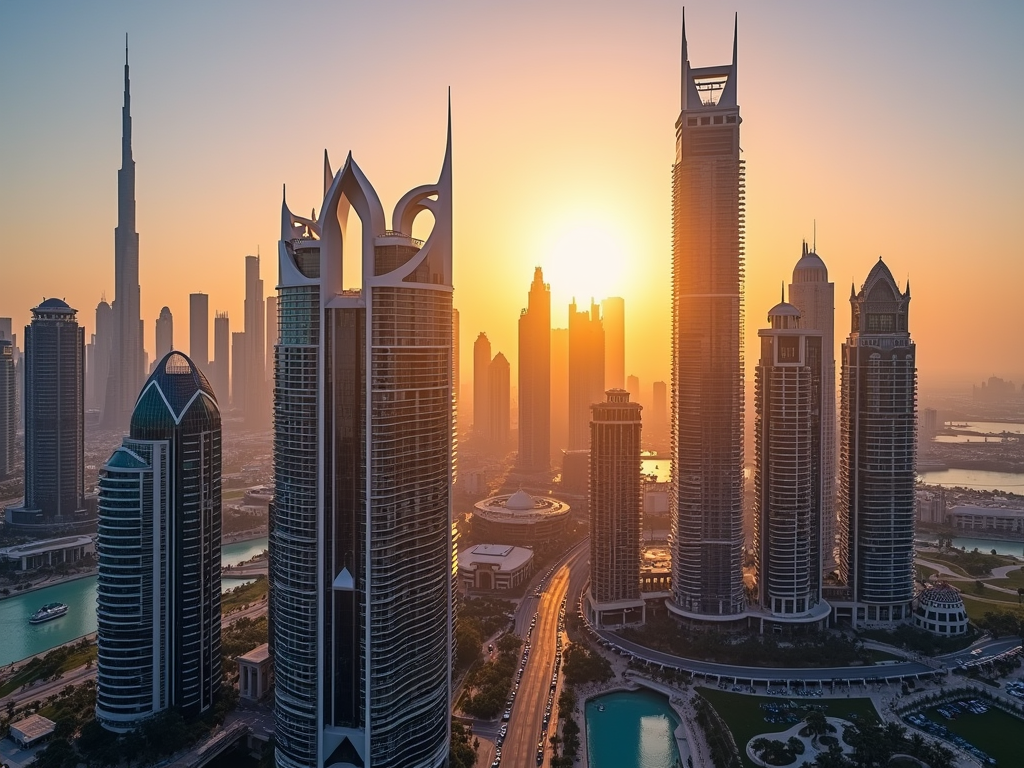The real estate boom in Dubai has transformed the economic landscape, creating a significant ripple effect on both local and international businesses. The flourishing property market has not only attracted investors from around the globe but has also stimulated growth in various sectors, making Dubai a pivotal hub for commerce and trade. In this article, we will explore how the real estate market influences various industries, the opportunities it presents, and the challenges that arise from rapid development.
Economic Growth and Investment Opportunities

Dubai’s real estate boom has led to unprecedented economic growth and a surge in investment opportunities. The influx of foreign capital has been instrumental in developing residential, commercial, and mixed-use properties. As a result, several sectors have seen significant advancements:
- Hospitality: An increase in luxury hotels to accommodate the rising number of tourists and business travelers.
- Retail: Expansion of shopping malls and commercial spaces to cater to the growing population and international visitors.
- Construction: A booming construction industry driving demand for materials, labor, and services.
- Financial Services: An increase in demand for real estate financing and investment consulting.
- Technology: Innovative prop-tech solutions becoming crucial for seamless transactions and property management.
Diversification of Local Businesses

The real estate boom in Dubai has also led to the diversification of local businesses. Entrepreneurs are now capitalizing on the vibrant market environment, leading to the establishment of a variety of new enterprises. Some notable areas of diversification include:
- Property Management Services: Companies offering specialized services to handle the increasing number of properties.
- Interior Design and Home Staging: A rising demand for aesthetic enhancement of properties before they hit the market.
- Real Estate Agencies: The need for brokerage services has soared, with agencies emerging to connect buyers and sellers efficiently.
- Legal Advisory Services: Legal expertise becomes necessary for navigating property laws and regulations.
- Marketing and Advertising: Real estate marketing agencies focusing on unique selling propositions to attract buyers.
Challenges for Businesses Amid Rapid Development
While the real estate boom in Dubai offers numerous advantages, it also presents challenges for local and international businesses. Agility and adaptability become paramount as businesses face a host of issues including:
- Market Saturation: The risk of a saturated market where competition becomes fierce.
- Regulatory Changes: Rapidly changing regulations that can impact operational procedures and profit margins.
- Infrastructure Strain: Pressure on local infrastructure leads to logistical challenges.
- Price Volatility: Fluctuating property prices can lead to instability for both new and existing businesses.
- Cultural Adaptation: The necessity for international businesses to adapt to local customs and practices.
The Role of Technology in Real Estate
Technology is a major driving force shaping Dubai’s real estate landscape. Emerging technologies have been pivotal in enhancing property marketing, management, and sales processes. Key technological trends include:
- Virtual Reality (VR): Allowing potential buyers to have immersive tours of properties from the comfort of their homes.
- Big Data Analytics: Utilizing data to analyze market trends, buyer preferences, and investment opportunities.
- Blockchain Technology: Increasing transparency and security in property transactions.
- Mobile Applications: Providing easy access to listings and property management solutions for users.
- Smart Homes: The rise of IoT devices prompting a niche market for tech-savvy buyers.
Conclusion
Dubai’s real estate boom has had a profound impact on local and international businesses, driving economic growth while creating both opportunities and challenges. The rapid expansion of various sectors demonstrates the interconnectedness of real estate with the broader economy. As businesses navigate this dynamic market, the importance of adaptability and technological integration becomes increasingly paramount. Moving forward, stakeholders must continue to innovate and respond to the evolving landscape to remain competitive.
Frequently Asked Questions
1. How has Dubai’s real estate boom affected employment opportunities?
The real estate boom has created numerous job openings in construction, property management, real estate agencies, and various service sectors, significantly boosting local employment rates.
2. Are there any risks associated with investing in Dubai’s real estate?
Yes, risks include market saturation, regulatory changes, and price volatility, which can impact return on investment.
3. What types of businesses have emerged due to the real estate boom?
New businesses have emerged in property management, interior design, real estate brokerage, legal advisory, and marketing services, among others.
4. How is technology influencing the real estate market in Dubai?
Technology enhances marketing, streamline transaction processes, improves property management, and facilitates virtual tours, making the buying experience more efficient.
5. What is the impact of tourism on Dubai’s real estate market?
Increased tourism has driven demand for residential and commercial properties, particularly in hospitality and retail sectors, contributing to the overall growth of the market.


